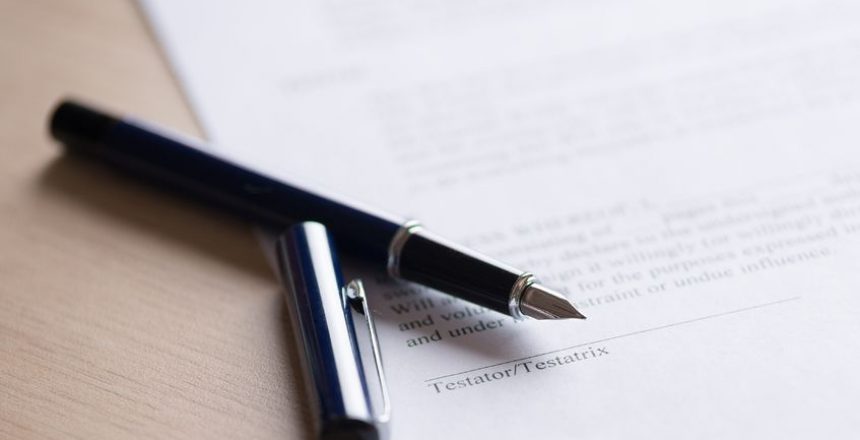Are you one of the 61% in Scotland who haven’t yet made a Will? Of you are then you might want to read this article to find out what you’re letting your loved ones in for when you pass away.
Many people don’t think that they need bother making a Will because they assume everything in their estate will be left to their nearest and dearest. On the face of it, that might seem right, but you cannot always take that for granted and, as everyone’s personal circumstances are different, you take a risk in testing that assumption.
Let’s look at how the situation might play out. If you are married and you don’t have a Will, then it is likely that your estate will go to your spouse (and if you have children, they, too, have rights to share in your estate). These same rules apply to Civil Partnership and same sex marriages.
If, however, you are not married and have a partner, unless you have a Will, your partner has no automatic entitlement to your estate.
The situation might well be worse if you have a partner and your children who come from a previous relationship do not enjoy good relations with your partner. If you die without making a Will, your children and not your partner, are entitled to your estate. He or she could be evicted from the home you’ve shared. Your partner will be left without any share in any of the assets that are in your name and that you’ve both worked hard to build up. Even if your house is in joint names, unless there is a survivorship destination in the title (meaning that the title to the house automatically transfers to the survivor on death) then your children from that previous relationship would end up owning half the property with your surviving partner – and that can make life very difficult for the loved one you’ve left behind!
Even if you are married or have a civil partner, there can still be problems. When there’s no Will, your spouse or civil partner is entitled to something called Prior Rights. That means that they would inherit the family home, the furniture in the family home and a cash sum of money. Each of these items has limits placed on the value – in the case of the family home, the maximum value is currently £473,000, the maximum value of furniture is £29,000 and the maximum value of cash is £50,000 (if there are children) and £89,000 (if there are no children).
Consider this – if you have children from a previous relationship that would have the immediate effect of reducing the amount of cash your spouse or civil partner is automatically entitled to receive from £89,000 to £50,000 – a drop of £39,000!
If there is moveable estate (that’s pretty much anything that’s not land and buildings) left after the Prior Rights have been exhausted, Legal Rights come into play. This means that your spouse or civil partner is entitled to receive one third of the remaining estate and any children are entitled to receive one third of the remaining estate divided equally amongst them and, after satisfaction of that, continuing with this example, any child or children are then entitled to the remainder of your estate irrespective if it is made up of heritable (land and buildings) or moveable property.
When you consider situations in today’s “modern families”, if you have remarried and your children are from a previous relationship and you die first, your children have no automatic entitlement to receive anything from your then spouse or civil partner when he or she subsequently passes away. That means that if your spouse or civil partner inherits all of your estate under the Prior Rights rules, when he or she dies, any children that they have would be entitled to share in that estate and your children would receive nothing.
Remember, too, that if you’re not married and have a partner, then they have no Prior or Legal Rights at all!
So, No Will, No Problem, Right? Maybe it’s just not right. These are just some examples of what might happen if you decide not to bother making a Will!
If you need any advice on what might happen to your estate after your death if you don’t have a Will, please call us on 01698 373365 or click here to email us.
